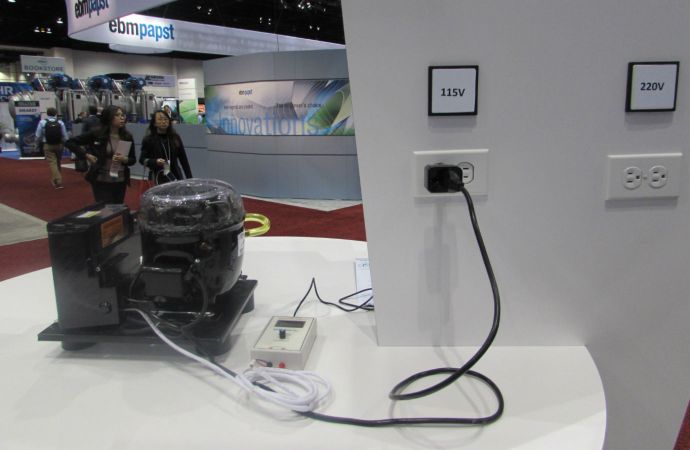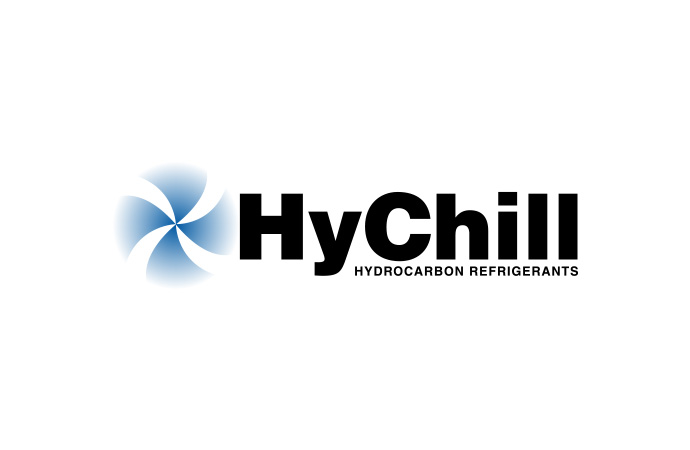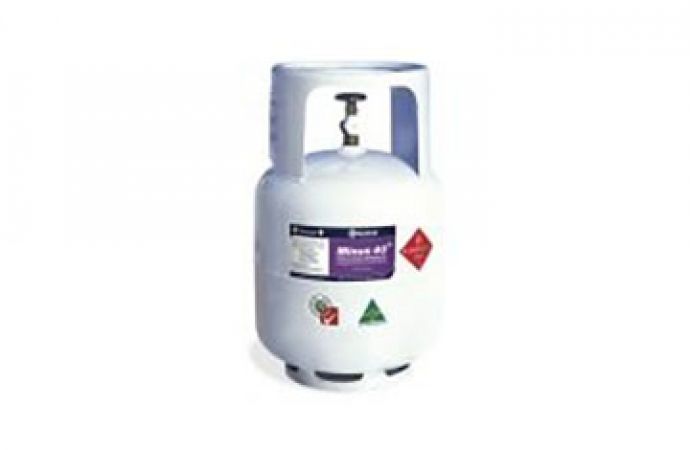hydrocarbons21.com talked with John Clark, Director of HyChill, during the 2014 Gustav Lorentzen conference in China. In the interview he provided his perspective on the most promising sectors for hydrocarbon use in Australia, while pointing out that the carbon tax in particular brought about significant interest and demand for hydrocarbons.

hydrocarbons21.com: What are the key applications today using hydrocarbons in Australia and what are the main drivers?
John Clark: For HyChill automotive applications are a key area for us in Australia, which is simply because when we started out we recognised that focussing on this market provided the fastest pathway to sustainability of our business. Compared to stationary systems, a relatively large proportion of automotive AC refrigerant usage is in the service market. In addition, the charge sizes and system design and operating environment offered relatively low barriers to entry. Once we determined that it was safe to use hydrocarbons in this application, it was clear it was the obvious choice as our main target market.
hydrocarbons21.com: In which other sectors do you see the biggest potential for hydrocarbons in Australia?
John Clark: We tend to approach it from a “lowest hanging fruit” perspective. Given that hydrocarbons basically always offer a higher performance, higher efficiency, higher reliability outcome in virtually any application, the main consideration becomes safety. So the “lowest hanging fruit” is applications where safety-related change requirements are relatively few. For example, we think that heat pump hot water services are a fantastic application for hydrocarbons. Of course domestic refrigeration is already dominated by hydrocarbons - HC is used in 100% of Australian refrigerators and 50% of imported fridges and growing. We also see transport refrigeration as a key opportunity – charges are relatively easy to manage for safety and there is a lot of transport refrigeration in Australia. We are already active in that area and that business is developing well.
Small split system air conditioning is another application with great potential for hydrocarbons - Australia is a perfect market for them because the Australian distribution networks for hydrocarbon refrigerants are extensive and Australia already has many training facilities that provide hydrocarbon training.
hydrocarbons21.com: Is HyChill active in other regions beyond Australia?
John Clark: We do sell our products in a number of overseas countries with varying degrees of success - we export to China, Malaysia, Philippines, Thailand, and New Zealand. Our business in Australia is profitable thanks to our own local market; the export market is a bonus.
Whereas we focus clearly on automotive in Australia, the approaches we usually receive from foreign organisations tends to be focussed more on energy saving conversions of existing stationary f-gas based systems. This does concern us because such energy saving schemes can be quite lucrative and the dynamics of that kind of business model can make it tempting for energy savings contractors to undervalue the safety implications of conversions to a flammable refrigerant. Ultimately, what it means is that the company approaching HyChill does not really want to be a distributor of our products but rather they only want to use it themselves in energy savings projects. By contrast, our business in Australia has been successful because we focused on setting up national distribution of our product. It is distributed to every significant population area in Australia and therefore readily available to the end user – that is, the workshops and the air conditioning and refrigeration techs who want it - and that’s what has worked. We have struggled to get the same kind of thing going in export markets.
hydrocarbons21.com: Is HyChill involved in training / awareness raising regarding hydrocarbons?
John Clark: We took a different take on that one to most other HC manufacturers and importers. When we first started our business we went to the training colleges - called TAFE (Technical and Further Education) colleges in Australia. We said to them “look we don’t think that we should be the training organisation, we think you should”. And so right from the beginning we have donated pro-actively and free of charge in an effort for them to support training and that has worked over the long term. Now in Australia there are many technical education colleges that use hydrocarbons routinely. That's not only great, but that's the way it should be.
hydrocarbons21.com How do you see the overall level of education? Do you think there is scope for improvement?
John Clark: There is significant room for improvement in the quality and quantity of training available and delivered to RAC personnel for all refrigerant gas types. And yes, that includes hydrocarbons. Much of the younger generation of RAC techs in Australia are receiving hydrocarbons training as standard practice, but there is a great need for the older techs up-skill to hydrocarbons.
hydrocarbons21.com: What would you recommend as top 3 actions from the government to help hydrocarbons gain higher market share in Australia and beyond?
John Clark: For us that’s a no-brainer. When Australia introduced the carbon tax in 2012 it brought about a significant demand and interest in hydrocarbons. So clearly to penalise f-gases based on their global warming potential was a great idea from our perspective. Unfortunately with the change of government that tax has just been removed. What we don’t know yet is how much of an effect it will have. It is too early to tell, because the tax was only removed a few weeks ago. Nevertheless the evidence is clear - tax some stuff and people will stop using it.
The other thing is the political lobbying of the f-gas industry, which is huge in Australia. They put a massive amount of resources into lobbying our government to act in favour of f-gases and against natural refrigerants. We as a minor actor in the field compared to them do not have the resources to match them in terms of being politically effective. But there is now the Australian Refrigeration Association (ARA), which is the natural refrigerants group in Australia and with that we are making some progress in terms of influencing the political agenda.
hydrocarbons21.com Now that the tax has been removed, do you think that the government should take an alternative action to reduce the emissions of f-gases?
John Clark: If you believe in the issue of Global Warming, then there can be no other answer but “yes”. There is actually a talk about the tax being brought back in some other form. Remember that governments are addicted to taxes. Remember also that removal of this particular tax ran counter to global trends and was mainly an act of ideological fervour and political manoeuvring. I think these are flimsy foundations for sustaining the current position and so I think there's a good chance that a change of government and continuing trends in globally regulations and taxes targeting high GWP gases will turn Australia's policies back around.
hydrocarbons21.com: Is there anything that the industry could do to increase the uptake of natural refrigerants in Australia?
John Clark: Yes, Australia provides an ideal opportunity for the air conditioner manufacturers to skip the next generation of fluorocarbons and go straight to R290 systems. We have the right climatic conditions, national distribution of hydrocarbons and trained technicians. The same applies to automotive. The Australian Government commissioned "Cold Hard Facts" report shows that at least 8% of all vehicles on the road in Australia have hydrocarbons in their systems, and there is no long term evidence that this compromises safety, so why not forget about HFO's and go straight to the more efficient, reliable and long term solution – hydrocarbons!
Thank you!
MORE INFORMATION
Related stories

_1477296886.png)



